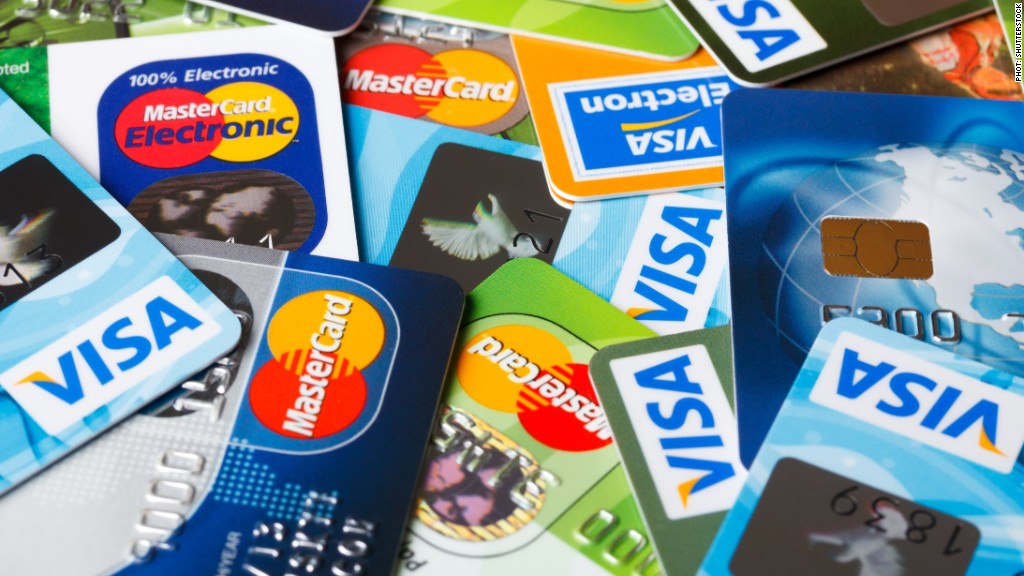
You could be getting a lot more out of your credit cards than you think.
We already know that Millennials own the lowest number of credit cards of any other age group -- in fact, two thirds don't even own a credit card at all. But those who do may not be using them to their full advantage.
To make the most out of yours, avoid making these common mistakes.
Not paying off debt in time
Credit cards are for borrowing more than you have and paying off in installments, right? Yes and no, says Matt Shultz, an industry analyst at CreditCards.com. Interest can cause debt to accumulate quickly, and with credit card debt in America surpassing $1 trillion, keeping up with monthly payments is of the utmost importance.
"It's always a good idea to pay your credit card off at the end of the month and -- if you can't pay it off in full -- to pay as much as you can over the minimum," Schulz says.
Related: 3 of the biggest credit card mistakes
That doesn't mean that there's never a reason to justify spending more than you have on hand.
"When you're spending money on a wardrobe for a new job or having the opportunity to travel "once in a lifetime, you can justify certain spending," Schulz says. "But the primary job of the credit card holder is to pay that balance off at the end of the month.
Canceling cards
The myth that canceling lines of credit is bad for your credit history mostly holds true. Because the average number of accounts you have open and your total amount of available credit both contribute to your credit score, canceling cards will cause your score to take a hit.
But it can still be a smart move to cancel some cards if they're significantly contributing to your debt.
"There can be a good reason to cancel a line of credit if a card has an annual fee and you know you're not going to use that card anymore," Schulz said. "The hit that your credit would take for canceling that card won't be necessarily worse than paying $50-75 for that annual fee. "
But before you shut down that line of credit, call up the issuer and ask if you can downgrade to a different card with no annual fee.
Not shopping around
While many people stick to the credit card offered by their bank, they may be missing out on rewards that better suit their lifestyles. Rewards are no longer just about free airfare and cash back. Credit card companies know Millennials are all about the experiences, offering everything from free Uber rides to 50% off Spotify premium.
"We have definitely seen banks who have bent over backwards to offer experiences that go beyond the typical ones," Schulz said. "Experiences like going to batting practice with major league teams or getting VIP access to music festivals have never been the norm before now."
Using a high-interest retail card
Tantalizing rewards at your favorite retail store may tempt you to open a card there. However, it's important to be honest with yourself about the kind of spender you are, Schulz says. If you normally struggle to make minimum payments on credit cards, retail cards may trap you into paying high interest rates.
"Those types of cards come with interest rates that are far higher than the average credit card," Schulz said. "While retail cards can be a good jumping off point, it's very important to not run up too much debt."
Avoiding credit cards altogether
A large number of Millennials don't even own a credit card, and in many ways they've had the least exposure to credit cards of any age group. The Credit Card Accountability Act of 2009 requires individuals under 21 to prove they can pay off their debt or have someone who can co-sign the application. It also means that credit card issuers cannot offer freebies to students in exchange for a credit card application, leading to a dramatic dropoff in their representation on college campuses.
Related: This credit card offers great rewards ... if you spend $7,500
Millennials are also likely to have a more negative perception of credit cards, given their experiences.
"Millennials came of age during the Great Recession and are scared -- for good reason -- about taking on card debt after seeing their parents get burned," Schulz says.
But having a line of credit open is important in more ways than just the obvious. A bad credit score can be a problem if you try to rent an apartment or take out a car loan, but it can also prevent you from getting a cell phone contract or potentially become an issue in your relationship.
"Bad credit will cost you a fortune over the course of your life in terms of high interest rates on mortgages," Schulz said. "It's better to make the mistakes early and reap the rewards early."
